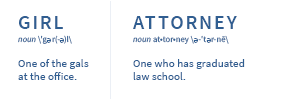From The Huffington Post authored by Sanjana Karanth:
“The U.S. Women’s National Soccer Team (USWNT) gave a shoutout to women’s empowerment this weekend by wearing jerseys with the names of women who inspire them, from famous musicians to Nobel Prize winners.
Players on the team sported the special jerseys at Nashville’s Nissan Stadium during their game against England for the SheBelieves Cup tournament.
SheBelieves is a “movement that originated in 2015 in the lead up to the FIFA Women’s World Cup. It was created with the goal of encouraging the female leaders of tomorrow to chase their dreams,” according to a press release from USWNT.
Each player repped a different name on the back of their jersey because that individual player considered that specific woman to be their inspiration.”
Read the full story by FOLLOWING THIS LINK










